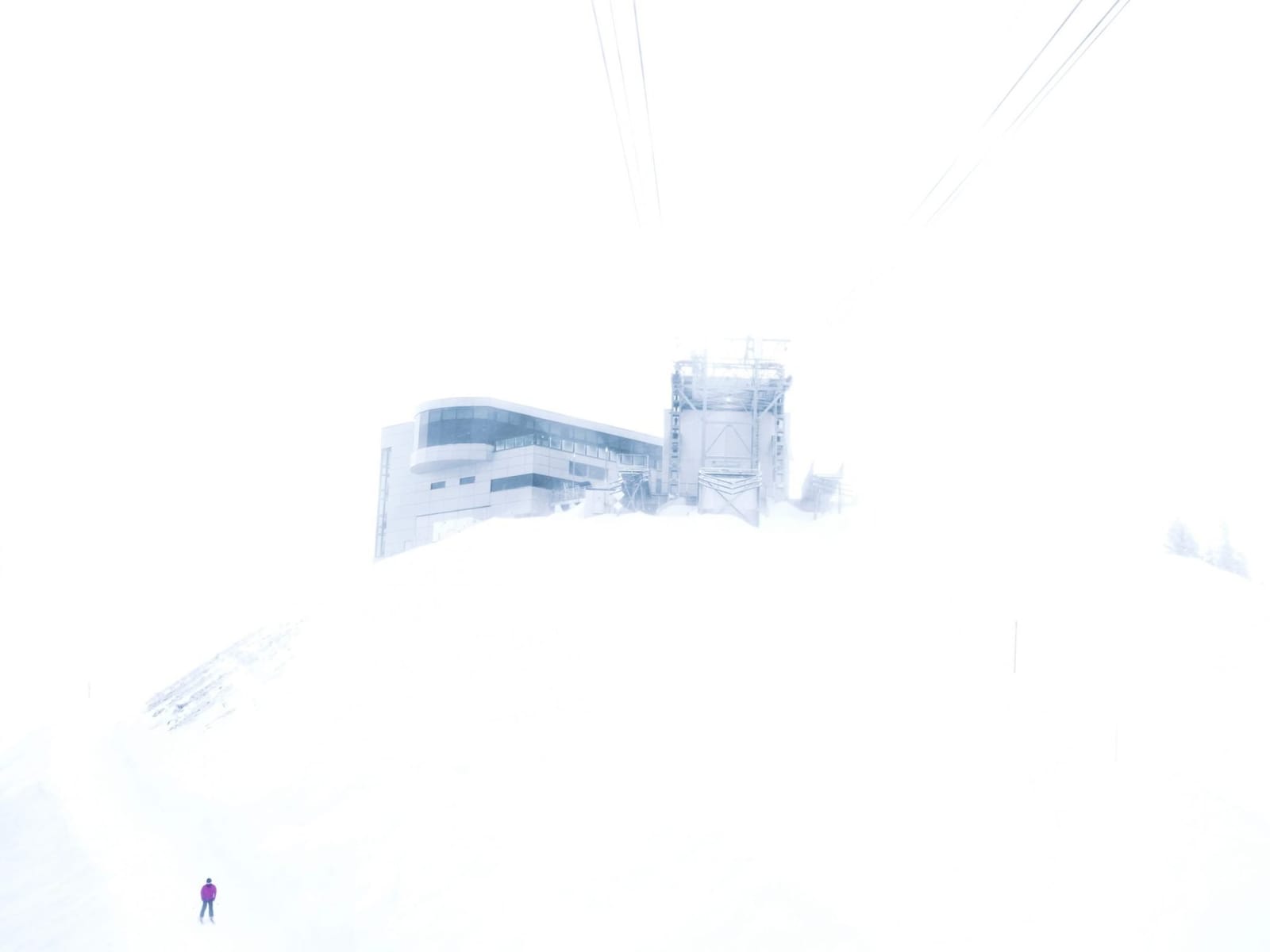Snow-blasted skies and temperatures around zero. The sun goes down at 5:49pm.
I thought about Haruki Murakami while C. and I wandered through hotel lobbies and fields of snow. The days around my birthday often find me rethinking the rhythm of my life and nursing morning fantasies, and this seed was planted ages ago after reading about Murakami’s routine:
When I’m in writing mode for a novel, I get up at four a.m. and work for five to six hours. In the afternoon, I run for ten kilometers or swim for fifteen hundred meters (or do both), then I read a bit and listen to some music. I go to bed at nine p.m. I keep to this routine every day without variation. The repetition itself becomes the important thing; it’s a form of mesmerism. I mesmerize myself to reach a deeper state of mind. But to hold to such repetition for so long — six months to a year — requires a good amount of mental and physical strength. In that sense, writing a long novel is like survival training. Physical strength is as necessary as artistic sensitivity.
The Paris Review, 2004
I’ve spent years crafting a morning fantasy of my own, and it’s become a vision as rich and familiar as a favorite film. I wake at dawn, splash cold water on my face, and stretch. I meditate in the quiet and jot down notes for stories, maybe the scenes from last night’s dreams. Then I run a few miles and return home for a shower and a light breakfast: fruit, barley, or whatever morning people eat. Then I sit for an hour or two with only a notebook and pen, writing in silence before switching to editing and compiling. I do not check the internet or listen to music. Silence is essential, so my mind is left only with the world I am building. I work this way until late morning when I finally let the world enter my head and deal with the day’s obligations and bill-paying labor. Because I’ve already taken care of my spiritual, physical, and creative work, the day can go to hell at noon, and it will still have been worthwhile.
I’m very proud of this routine even though I’ve never done it. Instead, I wake up at all hours, never eat breakfast, and I scribble into my notebook while I’m in bed or the car or standing in the middle of a superstore. Music is always playing. An unholy number of browser tabs are open. I can’t contemplate walking quickly, let alone running, until deep into the afternoon. Although I meditate most days, I still fight the urge to look at my watch. Even if my phone is in a drawer, it hums in the corner of my skull like there’s another person in the room. The babble doesn’t fade until midnight. Then I can concentrate.
Yet my Spartan Morning Man fantasy persists, year after year. Maybe because it takes so much effort. Nobody works at becoming a night owl, do they? Yet just thinking about becoming an early riser makes me feel crisp and minty like I’m in a commercial, slipping into cool water with a fresh linen scent. The persistence of this fantasy is astonishing. Perhaps I’ll try it someday.
In the meantime, I’m grateful to be surrounded by snow because I can finally enjoy Echospace’s The Coldest Season in its proper context: at two o’clock in the morning on a long winter night.





